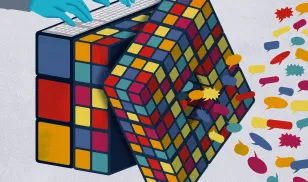


Ethiopia
Ethiopia remains beset by civil war and intercommunal violence, abuses by security forces and violations of due process are still common, and many restrictive laws remain in force. Since late 2020 and until November 2022, fighting between the Federal Government and the Tigray Defense Force (TDF) has led to the displacement of millions and credible allegations of atrocity crimes, and violence has spilled over into neighboring regions.
Research & Recommendations
Ethiopia
| PR Political Rights | 8 40 |
| CL Civil Liberties | 10 60 |
Overview
The 2018 election of Prime Minister Abiy Ahmed initially set off a transitional period. Abiy pledged to reform Ethiopia’s authoritarian state, undertook legislative reforms, held elections, and implemented some liberalization policies. However, Ethiopia remains beset by internal conflicts and intercommunal violence; abuses by security forces and violations of due process are common, many reformed laws have yet to be implemented meaningfully; and many restrictive laws remain in force. Armed conflicts in the Amhara, Oromia, and Tigray Regions in recent years have caused widespread displacement, and credible allegations of atrocity crimes have emerged.
In countries where democratic forces have come to power after periods of antidemocratic rule, the new governments should pursue an agenda that protects and expands freedoms even as it delivers tangible economic and social benefits to citizens.
These countries must act swiftly to release all political prisoners, build or revitalize democratic institutions, reform police and other security forces, organize and hold competitive multiparty elections, and ensure accountability for past human rights violations.
In countries where there has been significant erosion of political rights and civil liberties, policymakers, legislators, jurists, civic activists, and donor communities should work to strengthen institutional guardrails and norms that serve to constrain elected leaders with antidemocratic or illiberal aims.
Ethiopia
| A Obstacles to Access | 7 25 |
| B Limits on Content | 13 35 |
| C Violations of User Rights | 10 40 |
Political Overview
The 2018 election of Prime Minister Abiy Ahmed initially set off a transitional period. Abiy pledged to reform Ethiopia’s authoritarian state, undertook legislative reforms, held elections, and implemented some liberalization policies. However, Ethiopia remains beset by internal conflicts and intercommunal violence. Abuses by security forces and violations of due process are common, many reformed laws have yet to be implemented meaningfully, and many restrictive laws are still in force. Armed conflicts in the Amhara, Oromia, and Tigray Regions in recent years have caused widespread displacement, and credible allegations of atrocity crimes have emerged.
Freedom of expression online has been and is increasingly under attack as governments shut off internet connectivity, block social media platforms, and restrict access to websites that host political, social, and religious speech. Protecting freedom of expression will require strong legal and regulatory safeguards for digital communications.
Governments should encourage a whole-of-society approach to fostering a high-quality, diverse, and trustworthy information space. The Global Declaration on Information Integrity Online identifies best practices for safeguarding the information ecosystem, to which governments should adhere.
Comprehensive data-protection regulations and industry policies on data protection are essential for upholding privacy and combating disproportionate government surveillance, but they require careful crafting to ensure that they do not contribute to internet fragmentation—the siloing of the global internet into nation-based segments—and cannot be used by governments to undermine privacy and other fundamental freedoms.




